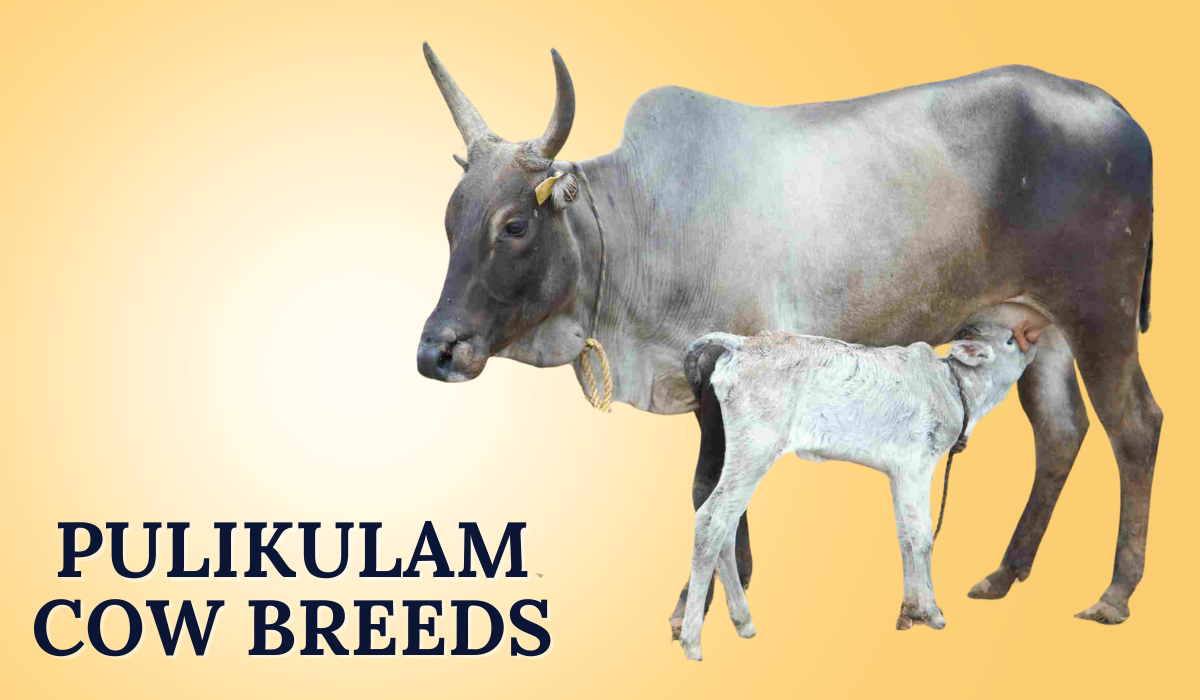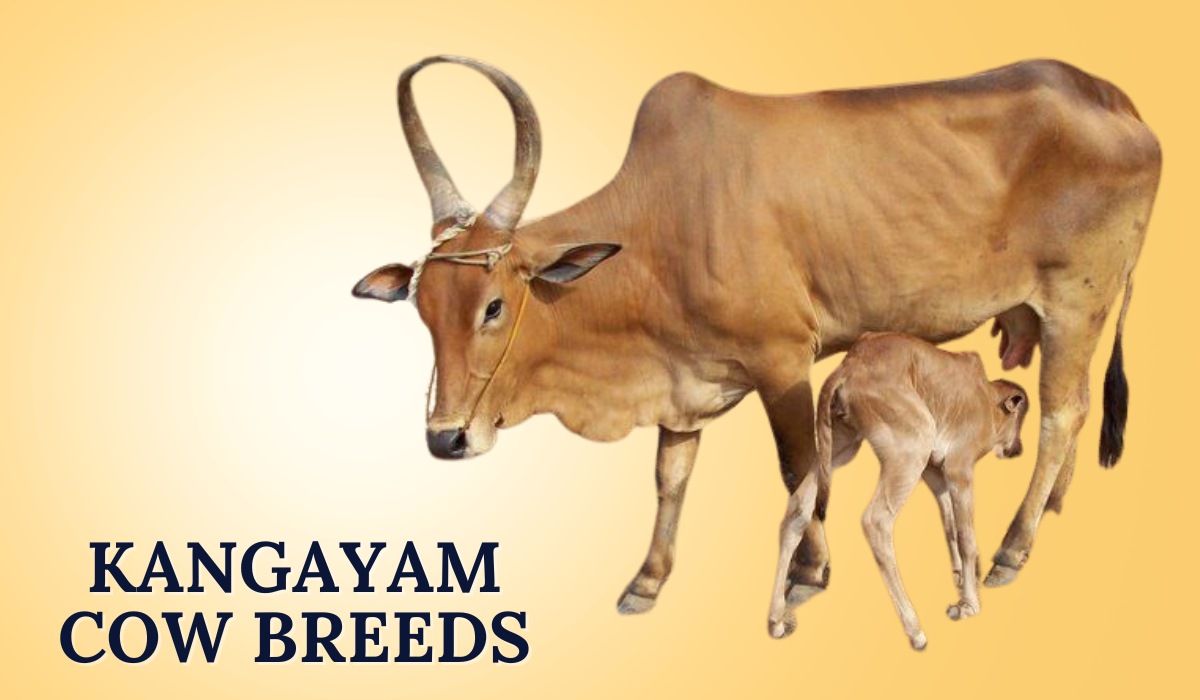Distinctive Traits of Pulikulam Cow
The Pulikulam cow breed in Tamil Nadu is medium-sized. These cows have a strong, muscular build and a well-defined hump. Their coat color ranges from light grey to dark brown. They are known for their sharp horns, which curve outward. Pulikulam cows are revered for their endurance. They can graze on sparse vegetation, making them well-suited for Tamil Nadu’s dry climate.
An attractive feature of these cattle is their affordability. The Pulikulam cow breeds price under 50000 INR makes them accessible to small-scale farmers, enabling them to invest in quality livestock without a significant financial burden. Additionally, these cows are highly fertile, producing healthy Pulikulam cow breed babies, which contribute to herd sustainability.
Milk Production and Market Value
While primarily raised for their draft abilities, Pulikulam cows also provide nutritious milk. On average, Pulikulam cow breeds milk per day yields range from 2 to 4 liters, depending on their diet and care. They produce their milk in moderate quantities, which people highly value for its rich nutritional content and health benefits.
The Pulikulam cow breeds milk price per litre in India generally ranges from ₹40 to ₹60, depending on regional demand and quality. For bulk buyers, the Pulikulam cow breeds milk price per kg provides a cost-effective solution for producing traditional dairy products like curd and ghee. The Pulikulam cow for milk ensures a steady income stream for farmers, particularly in regions with high demand for organic and natural dairy products.
The milk is packed with essential nutrients, making it beneficial for overall health. Pulikulam cow breeds milk benefits include improved digestion, stronger bones, and enhanced immunity, making it a preferred choice for health-conscious consumers.
Health and Environmental Benefits
The Pulikulam cow breeds disease resistance is a key factor in their popularity. These cows are naturally resilient to common cattle ailments, which reduces the need for frequent veterinary interventions. Their ability to adapt to harsh climates and resist diseases ensures lower maintenance costs for farmers.
The Pulikulam cow breeds milk benefits for male consumers include enhanced stamina, muscle strength, and improved cardiovascular health. Additionally, the milk is rich in bioactive compounds that are beneficial for skin health. The Pulikulam cow breeds benefits for skin include reducing dryness and promoting a natural glow, which has led to its use in traditional beauty remedies.
In terms of reproduction, Pulikulam cow breeds praganency cycles are consistent, and the calves are healthy and resilient. Their calves, referred to as Pulikulam cow breed babies, grow quickly and are ideal for expanding herds or selling to other farmers.
Economic and Cultural Significance
The Pulikulam cow breeds donation programs have become a cornerstone of many rural development initiatives. By donating these cows to small-scale farmers, organizations help improve livelihoods and promote sustainable farming practices. The affordability of the Pulikulam cow breed price under 50000 INR makes these programs accessible to more communities.
In Tamil Nadu, people associate these cows with cultural significance, linking them to traditional festivals and rituals. The Pulikulam cow breeds plays an essential role in producing high-quality milk, which is in demand both locally and in urban markets. Farmers use the cow’s manure as an organic fertilizer. This practice contributes to sustainable agricultural methods.
These cows are vital to rural economies. They provide financial security and offer a nutritious food source. The Pulikulam breed in Tamil Nadu symbolizes resilience and sustainability. They demonstrate the value of indigenous livestock in modern farming.
Conclusion:
The Dangi cow breeds in India showcase the resilience and adaptability of indigenous cattle. They thrive in challenging environments, resist diseases, and provide nutritious milk. These cows are invaluable to farmers. Their cultural and economic significance in Tamil Nadu highlights their importance in today’s agricultural landscape.
Whether for milk, draft power, or ecological contributions, investing in the Pulikulam breed supports sustainable farming. Additionally, this breed plays a key role in preserving local biodiversity. Furthermore, its ability to adapt to various environmental conditions makes it a valuable asset for farmers in diverse regions. In addition to its practical benefits, the Pulikulam breed also helps in maintaining soil health by naturally fertilizing the land. Consequently, investing in this breed is not only beneficial for farmers but also for the environment. Their affordability, low maintenance, and high utility make them vital to rural communities in Tamil Nadu and beyond.



